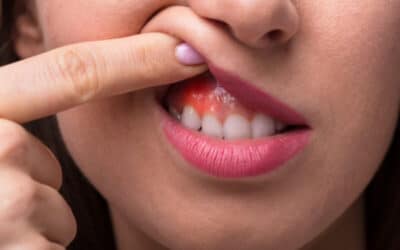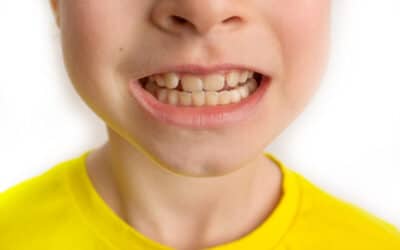Oral Care During Orthodontic Treatment
Oral Care During Orthodontic Treatment

More care needed during Orthodontic Treatment
Have a look in the mirror at your new braces. As you see, the brackets and wires have many nooks and crannies that can trap food and plaque. This means your risk of tooth decay and gum problems may be higher while you are wearing braces. You need to pay special attention to cleaning your teeth everyday and to your diet.
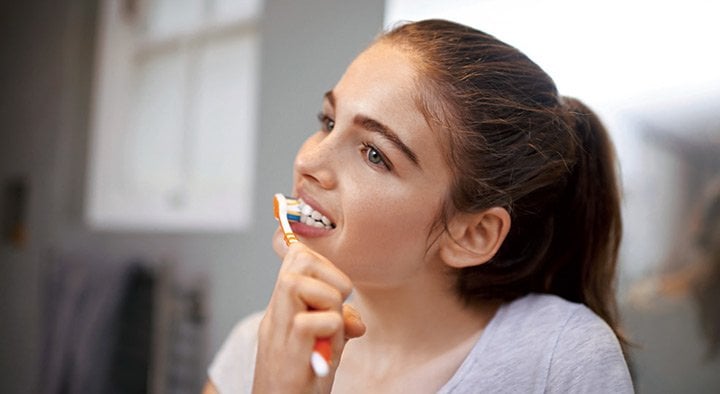
Permanent damage to tooth enamel can occur if the teeth and brackets are not kept clean. Areas on the enamel surface may begin to lose minerals (the early stage of tooth decay) leaving unsightly white spots. You may also develop inflamed, bleeding gums (Gingivitis). Gingivitis and the early stages of tooth decay can be reversed by taking extra care with your cleaning and diet. If left untreated, they can lead to bigger problems that will require treatment and have life long effects.
While you are having orthodontic treatment, you need to continue to have regular check-ups with your dental professional to ensure little problems don’t become big ones.
Tooth-friendly diet
Most of us are well aware that sugary foods and drinks can lead to tooth decay. Starchy foods, such as potato crisps, can also stick to teeth for long periods of time and cause tooth decay. There is increasing concern about acidic foods and drinks, colas (diet and regular), cordial, sports drinks, and fruit juices that can erode enamel from teeth when consumed frequently or when sipped over extended periods of time.

Saliva is your body’s natural defence against tooth decay. You need to give saliva plenty of time to wash away acids that form after eating and drinking. A good rule to follow is to limit eating times each day to 3 meals and 2 snack times. You can drink plenty of water as often as you like! Be aware that bottled water may not contain fluoride.
Braces-friendly diet and habits
There are certain foods that can loosen, break or bend wires and bands when you are wearing braces. Avoid hard foods such as nuts and hard biscuits. Foods such as apples and carrots should be grated or chopped into small pieces before eating to reduce the stress on your braces. Avoid sticky foods such as caramels, toffees, muesli or fruit bars. No chewing gum!
Habits such as nail biting, unnatural tongue thrusting, pencil chewing and nervous picking at your wires can also break braces. Be aware of these and make an effort to stop them.
Remember that damaged braces mean extra appointments, inconvenience and extended treatment time. If you do break your braces, be sure to make an appointment with your Orthodontist immediately. Broken braces are not correcting your teeth!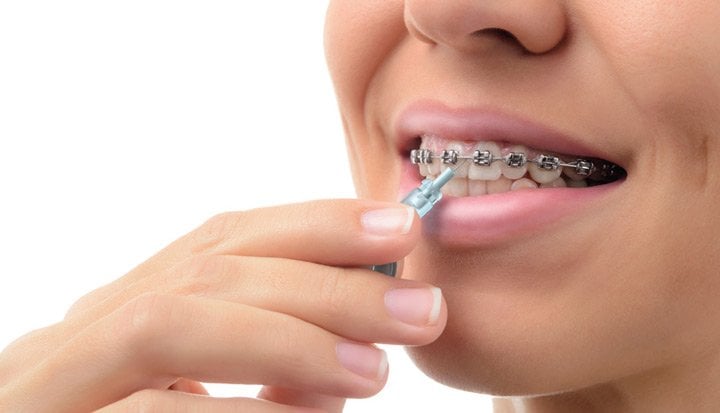
Care at home
Here are some simple steps for keeping your teeth, gums and braces in great shape:
- If your orthodontist has fitted you with elastics, remove them before brushing.
- Using a fluoride toothpaste and a small soft toothbrush, place your brush at an angle of 45 degrees against the gums. Gently brush along the gumline where the gums and teeth meet, using a small circular motion on each tooth.
- Spend about 10 seconds on each tooth before moving onto the next tooth, brushing in a set pattern so that you don’t miss any teeth.
- Gently brush the braces. Press your toothbrush firmly enough so that the bristles spread into the gaps between the wire and the tooth. Brush in and around all of the brackets and wires. Ensure that you brush under the wires. A power brush may be helpful.
- Brush both the inside and the outside surfaces of your teeth using a gentle circular motion on each tooth.
- For the chewing surfaces, use a firm back and forth motion.
- Spit out excess paste then closely inspect your teeth and braces in the mirror to check that they are clean & shiny.
- Don’t forget to replace your elastics.
- Use other oral care products as instructed by your orthodontist or hygienist.

Brush the outside surfaces and the inside surfaces of the lower teeth.

Brush the outside surfaces and the inside surfaces of the upper teeth.
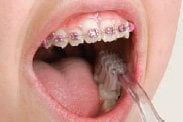
Use firm back and forth motion to brush chewing surfaces
Fluoride and oral care products
Using fluoride toothpaste twice a day is one of the most proven ways to stay decay free. Fluoride makes teeth more resistant to the acids produced after eating or drinking and puts back minerals that are lost in the early stages of tooth decay. Studies have shown that brushing twice a day with fluoride toothpaste is more effective in preventing tooth decay than only brushing once a day. Brushing in the morning and before bedtime are the best times.
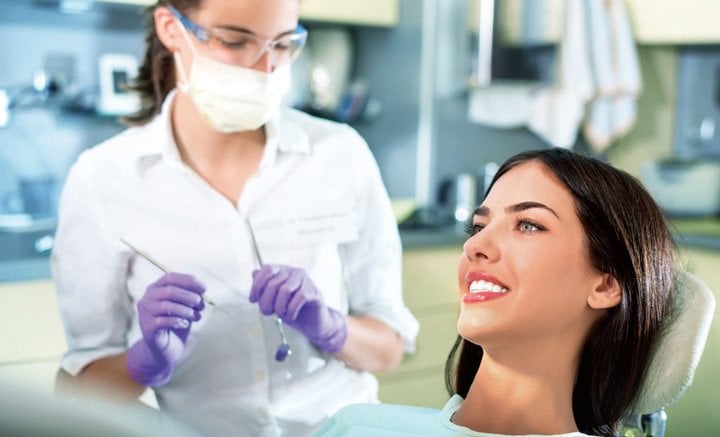
Because your risk of tooth decay may be higher while you are wearing braces, your orthodontist may recommend other fluoride products that give you additional protection. Your orthodontist may also recommend special cleaning aids such as interdental brushes.
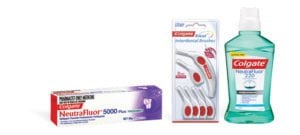
Ask your Orthodontist or Hygienist to show you how to use these.
Tooth Whitening
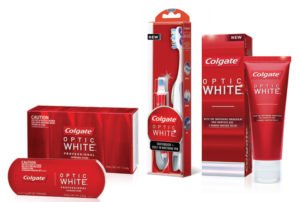
Often patients who have had orthodontic treatment become interested in having their teeth whitened after their braces are removed. Your dentist or hygienist can give you more information if you are interested.
For further information about orthodontic treatment at Dental House, click here.
Read the original article here.
Note: All content and media on the Sunbury Dental House website and social media channels are created and published online for informational purposes only. It is not intended to be a substitute for professional medical advice and should not be relied on as health or personal advice.
More Dental Articles
Some Sweet News For Diabetes Sufferers With Gum Disease
Diabetes type 2 is a scourge for sufferers and those with it know that well. Here is some sweet news for diabetes sufferers with gum disease. A new study performed at the University of Buffalo School of Dental Medicine made some helpful findings in this regard. The...
Is Painless Dentistry Without Needles Possible?
Intravenous sedation is much more full on in terms of heavily sedating the patient. It is usually reserved for those having extensive…
Can Gum Recession Be Fixed With Dental Bonding?
Gum Recession Fixes: Can gum recession be fixed with dental bonding? In some cases it can help and it is well worth a discussion with…
Bruxism In Children: Is It Influenced By Screen Time And Sugar?
Children gnashing & grinding their teeth asleep in bruxism – a scene from a horror movie. Overstimulation of sensitive minds…



